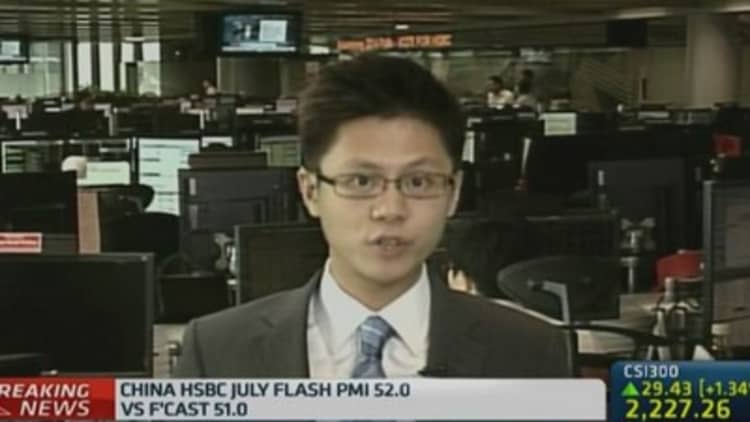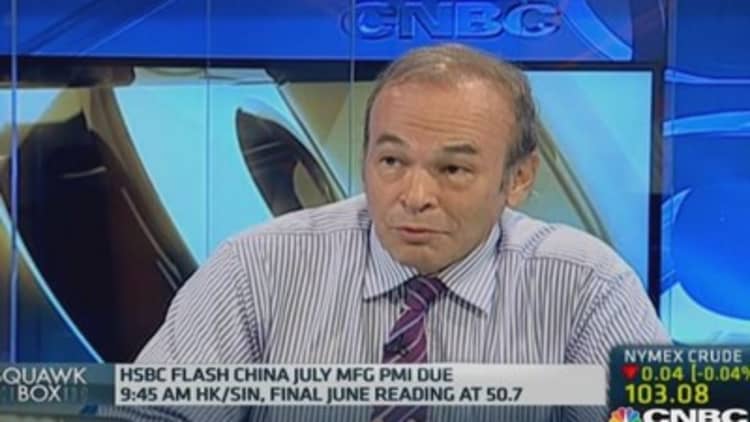
China's manufacturing activity rose to an 18-month high in July, a private survey showed Thursday, as the government's stimulus measures worked their magic, consolidating a recovery in the world's second biggest economy.
The HSBC flash Purchasing Managers' Index (PMI) came in at 52.0, better than a Reuters poll of 51.0 and following the 50.7 final reading in June, marking a second straight month of expansion.
Read MoreWhy China hasn't seen more defaults
This is the highest reading since January 2013 and above the 50-point level that separates growth in activity from contraction for the second consecutive month.
The Australian dollar rose at two-week high against the greenback on the news, while Shanghai stocks climbed to a one-month high and the Hang Seng Index leapt to seven-month highs.
A breakdown of the survey showed most of 11 sub-indices that measure output, domestic and foreign demand improved substantially from June. A sub-index measuring new orders, a gauge of demand at home and abroad, hit a 18-month high of 53.7, while the sub-index for output also rose to a 16-month high in June.
The employment index also improved from May, though it was still a shade under 50, which implies that jobs are still being lost in the manufacturing sector.
"It's a very good strong number to start third quarter with; it's the strongest reading since January last year. It just seems that 'mini stimulus' is continuing to filter through," said John Zhu, Greater China economist at HSBC.
Read MoreResisting the bullish tide on China shares
China's economy has been rebounding in recent months thanks to a series of small bursts of support measures doled out by Beijing to help avert a more pronounced slowdown.
The government has indicated that it would tolerate slower growth as it rebalances its economy away from a focus on manufacturing and towards domestic consumption.
The country's gross domestic product for the second quarter grew an annual 7.5 percent, after a 7.4 percent growth in the first quarter. Beijing has a target of 7.5 percent expansion for the full year.

According to Ron Napier of Napier Investment Advisors, the PMI indicator may be robust, but it doesn't address the other problems the economy is facing, especially the construction sector which he describes as being in a "massive decline."
"The U.S. is picking up more exports and the PMI reflects that. It doesn't reflect the domestic construction activity," said Napier, adding that Beijing has gone from "mini stimulus to maxi stimulus" in recent months, boosting spending by 25 percent year-on-year in May and June, to support the sector.
Read MoreIs it time to go outright bullish on China?
"The problem with China is there's a huge restructuring and rebalancing story going on. Having over built China, now they need to bring the sector down," Napier said.
"The PMI has become a very important market information— you have to feed the beast. It's useful information but it's not going tell you how the economy will be next year," he added.
—Reuters contributed to this report.

